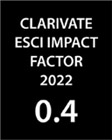“We are culturally Hungarians, but our mentality is Serbian.” Vojvodinian migrants in Hungary and “Yugo partying”
DOI:
https://doi.org/10.17649/TET.27.2.2507Keywords:
migration, music, identity, nostalgia, Yugonostalgia, Vojvodinian identityAbstract
During our fieldwork we found that a great number of ethnic Hungarians who resettled from Vojvodina go to so-called Balkan or Yugo parties in Budapest. This led to questions about what these public occasions mean for the Vojvodinian Hungarians and how they connect to the memory and commemoration of Yugoslavia. Based on this interest, the research has been enlarged: direct questions regarding the Yugo parties were incorporated into the interviews and participatory observation data about five Yugo parties contribute to deeper insight.
Yugo parties have been organised in Budapest five times a year since 2002. The primary goal of Yugo parties was to serve as a place and occasion for Vojvodinian Hungarian migrants to meet, to be together, to party. The Yugo party is a “Southern” festivity. “Southern” is understood here as pulsating rhythm, the kolo (circle dance), abandon partying till morning, the foods and the special quality of a feeling of togetherness. The welcoming community atmosphere contributes to the fact that today Yugo parties attract a wider circle of participants, not only the prime target group, i.e. the Hungarians from Vojvodina. Now youngsters who were born in the nineties and came to Hungary to attend high school or university and do not have personal memories of Yugoslavia also go to these parties; in addition, people who travel to Budapest especially for such events from the ex-Yugoslav area; foreigners from different countries, and Hungarians from Hungary.
During the interviews, the notion of “nostalgia” often emerged. With the disintegration of Yugoslavia, the strengthening nationalism in the successor states has attempted to sharply distance themselves from the other former constituent six socialist republics of Yugoslavia by emphasizing their ethnic, linguistic, religious and economic differences. At the same time Yugoslavia was described as a failed and artificial state which only tried to supress the birth of independent successor states. Nevertheless in the 1990s, a “Yugonostalgia” emerged. Most research projects primarily study and analyse the content, subject and phenomena of Yugonostalgia in the successor states. According to some researchers, restorative Yugonostalgia has to be distinguished from reflexive Yugonostalgia. Restorative nostalgia can be characterised as the longing for fantasies of an idealised Yugoslav past. In contrast, reflexive Yugonostalgia should rather be interpreted in a political context and can be seen as a reaction to both the destructive forces of nationalist nostalgia and Yugonostalgia as a pejorative marker in the contemporary discourse about former Yugoslavia. Comparing the analyses about Yugonostalgia in the successor states we can identify both some common points and some deviations. The most obvious difference is the absolute lack of a political context or political interests. The other main item of Yugonostalgia, the Tito cult is not present at all in the case of Vojvodinian migrants. The Vojvodinian Hungarians have not participated in either discourse about Yugonostalgia, or in the typical Yugonostalgic manifestations.
If nostalgia arises from the desire to sustain the continuity of memory, in case of the Vojvodinian Hungarian migrant community the Yugo party is not only the scene to remember their youth, but it also offers a possibility to live together the continuity of one’s individual walk of life – in most cases broken by involuntary migration (forced by the war and its consequences). Above all, we understand the importance of Yugo parties in Budapest in recreating and strengthening a special identity, which differentiates the Vojvodinian Hungarians from the Hungarians in Hungary.
Downloads
Published
How to Cite
Issue
Section
License
Authors wishing to publish in the journal accept the terms and conditions detailed in the LICENSING TERMS.






